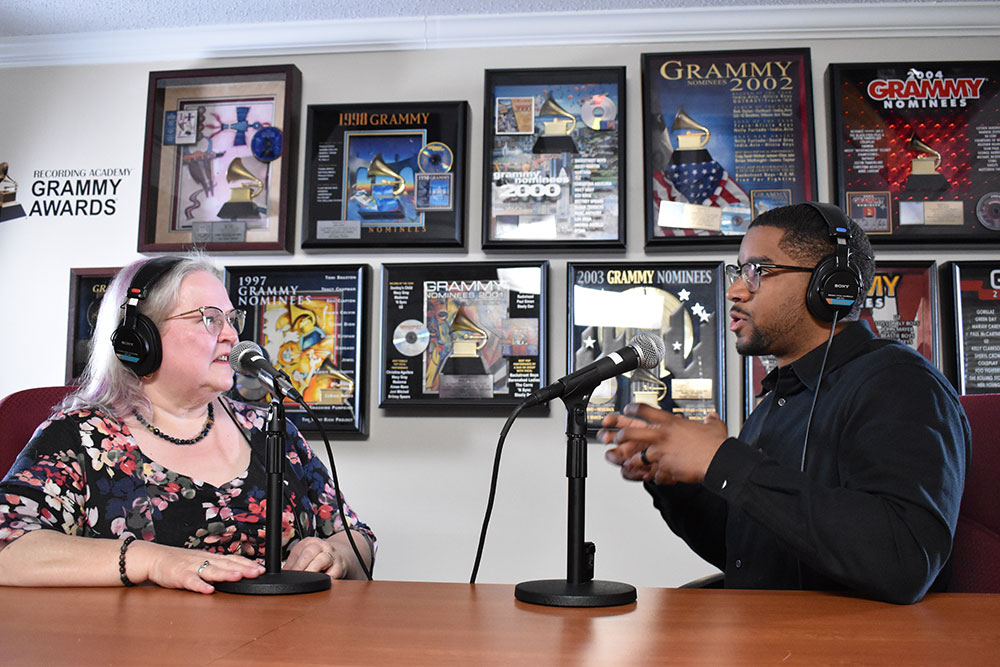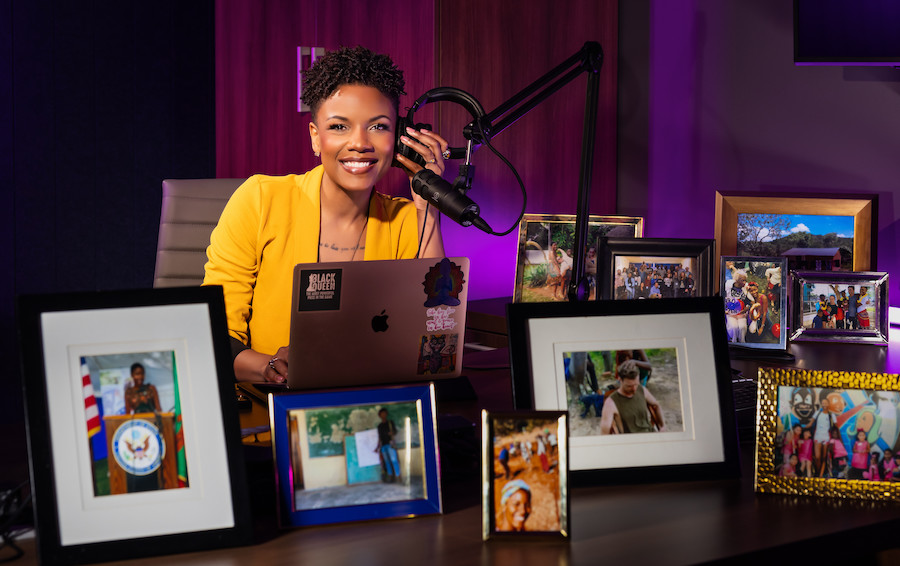– Elaine LaMontagne, Hot Seat Interviewer
KSU TEAMS UP FOR A HIGHER LEVEL OF BUSINESS EDUCATION
A dynamic trio at KSU’S Coles College of Business is doing impressive work blending academia with the business community. The threesome includes Kathy “Kat” Schwaig, Ph.D. (Dean), Richard “Rick” Franza, Ph.D. (Senior Associate Dean) and Michael “Mike” Salvador, Ph.D. (Director of Executive Education Programs). This triangulation spends a significant amount of time and resources outside the halls of the campus and inside the walls of business establishments throughout Georgia. They believe these external relationships ultimately develop better workforce-ready graduates. Kat provides strategic direction and cultivates a positive culture. Rick oversees day-to-day operations for on-campus students, and Mike brings additional revenue to the school by customizing mid-career education programs for company employees. The College uniquely views external businesses as its primary customer, with students being its products. This bold approach might sound unusual but it’s been highly effective in results.
Q1 – It’s clear that the three of you work cohesively as a team. What is your viewpoint on that dynamic and the objective?
A1 (Kat) – “Fortunately, we’re collaborative by nature and easy to work with. But it’s all driven by our strategic plan to be the business school for business.”
Q2 – I’m struck by how much time is spent outside campus networking with businesses. What are the priorities in this philosophy?
A2 (Rick) – “There are three primary components and purposes for our community partnerships. First, internship and employment opportunities; second, involvement in the classroom from guest speakers to project consultants; and third, executive education for mid-career managers and executives.”
Q3 – Can you further describe the executive education component and give an example?
A3 (Mike) – “Executive education, which brings our program additional revenue, provides services to existing professionals for specialty business training. For example, WellStar has exceptional physicians who may not be as savvy from a business perspective. But many have to develop those skills to be successful, so we provide 10 Saturday classes to boost their knowledge and provide leadership skills.”
Q4 – Have you observed any characteristics in those students who are drawn toward the entrepreneurial track?
A4 (Kat) – “This may sound cliché, but passion. They tend to make their own path, beat to their own drum, seeking solutions in non-traditional ways.”
Q5 – What books or periodicals would you recommend to business people, particularly members of The Oxford Center?
A5 (Kat) – “Execution: The Discipline of Getting Things Done.”
(Rick) – “Drive – Surprising Truth About What Motivates Us and To Sell is Human – Surprising Truth About Moving Others, and anything about innovational management.”
(Mike) – “A steady diet of The Wall Street Journal and The Economist. Plus, as sponsors, we’re fans of The Atlanta Business Chronicle and its Sunday TV show, The Atlanta Business Chronicle BIZ.”
Q6 – What’s the best argument for an MBA?
A6 – (Mike) – “It enhances soft skills and dramatically builds one’s professional network. It’s most often obtained by those with non-business degrees who need business acumen in their arsenal. There are three main ways to get an MBA – 1. Online or part-time so one can earn while working; 2. As a full-time student serving as a career accelerator; or 3. Executive MBA, as an older student who has been in the workforce for awhile.”
Q7 – Rick, as Chair of Academics and Athletics, what’s the excitement level for the upcoming football season at KSU?
A7 (Rick) – “Extremely high! 80% of season tickets for our inaugural 2015 season are already sold. Football is a great indication of student life – it creates tremendous connectivity and loyalty. It’s been a smart and exciting decision now that 70% of our students are traditional college age. Go Scrappy Owls!”
[Elaine is a former award-winning publicist who represented Macy’s, Pano Karatassos and the Buckhead Life Restaurant Group, Spa Sydell and the March of Dimes during her 20 year public relations career. Chosen one of Cosmopolitan Magazine’s “Top 10 PR Women”, Atlanta Business Chronicle’s “PR All Star” and SOS Taste of the Nation’s “National Community Business Leader of the Year”, she now freelance writes for miscellaneous publications and companies and serves on non-profit boards.]




















